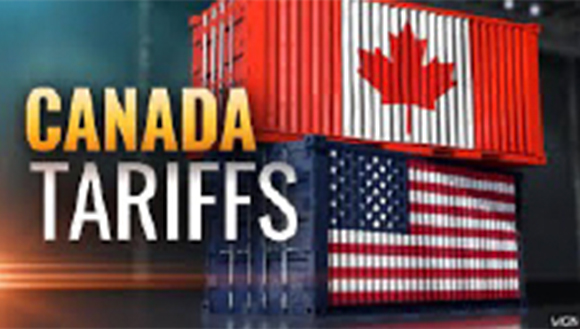On March 4, President Trump launched a tariff war, imposing 25% tariffs on all goods imported from Canada and Mexico, with a lesser 10% tariff on Canadian energy products. Canada retaliated with 25% tariffs on $30-billion worth of imported U.S. goods, including orange juice, peanut butter, wine, spirits, beer, coffee, appliances, apparel, footwear, motorcycles, cosmetics, and certain pulp and paper products.
On March 5, Trump granted a one-month exemption for automobiles and parts imported from Canada and Mexico that are covered under the Canada-United States-Mexico Agreement (CUSMA). However, tariffs remain in place on goods that do not qualify for CUSMA preference: 10% on non-CUSMA energy products, 10% on non-CUSMA potash, and 25% on all other non-CUSMA goods.
On March 10, Ontario Premier Doug Ford imposed a retaliatory 25% surcharge on electricity exports to New York, Minnesota, and Michigan. Ford paused the tax after speaking with U.S. Commerce Secretary Howard Lutnick, who agreed to meet the premier and federal finance minister, Dominic LeBlanc, on March 13. The White House also withdraws threats to double scheduled tariffs on steel and aluminium to 50%.
On March 12, the U.S. implemented 25% tariffs on Canadian steel and aluminum imports. Canada retaliated again with a 25% tariff on an additional $29.8-billion worth of U.S. imports, including steel ($12.6 billion), aluminum ($3 billion), and other goods ($14.2 billion). China retaliated on some Canadian food imports in response to tariffs Canada announced in October on Chinese-made electric vehicles (100%), steel and aluminum (25%).
On April 2, the U.S. plans to implement “reciprocal tariffs” on all countries, including Canada and Mexico, with existing tariffs, taxes, and other non-tariff barriers that restrict U.S. market access. Trump said that whatever countries charge the United States of America, they will charge them, no more no less.
Source: Financial Post











